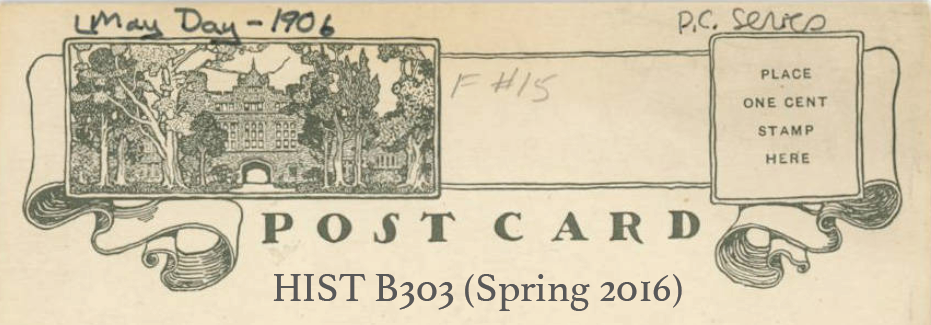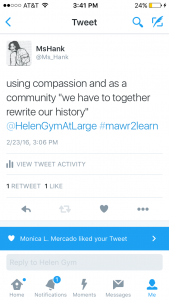For the Community Day of Learning, I was only able to attend one workshop in the afternoon. I went against my gut, and attended “Healthcare and Class: Bridging Differences or Falling Through Cracks.” The guiding questions for the panelists (a post-bac, a senior undergrad at Bryn Mawr, and a Haverford alum who was a Pediatrician) were about the logistical barriers to healthcare in regards to class. While the post-bac and the senior had many insights and posed some thought-provoking questions about our responsibility to help reform policies, the retired pediatrician was not so helpful. He ended up making very broad generalizations about people of lower socio-economic status, and of the people in the room. He assumed that everyone in the room was coming from an upper-class background, and that everyone in the room had insurance, for example. He asked us questions like, “Can you imagine what it’s like to not have a car, and to have to take the bus to your doctor’s appointment?” He also asked us to raise our hands if we knew the names of our housekeepers in our dorms, and then when most of us raised our hands, he said, “Oh, that’s better than I thought. Okay, but how many of you know more than just their names?”
While he made other generalizations, some definitely racist, the overall experience signaled a key challenge of the CDL: who are we teaching? His assumption that all of us were upper-class, though not entirely off-base as we are at an elite private institution, suggests that the goal of the CDL is to teach privileged people about “under-privileged” populations. I’m not sure that that is the goal, and I definitely don’t think it should be. I think that the goal of the CDL is to help every student find an access point into a conversation.
I’m attaching this tweet, a quote from the closing speaker, because I felt that it applied to our project. Connecting it also to my disappointing panel, I would also like to add that there were several people who jumped in to push back on some of the points that the retired pediatrician was making. Even though it was difficult to watch so many micro aggressions in such a short amount of time, it was nice to see a group of people participating in thinking critically about the language that we use, especially when discussing race and class and the healthcare system.

